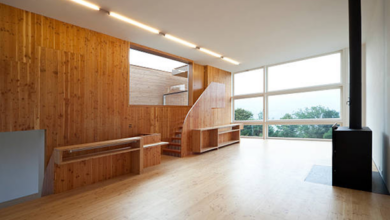Digicel Pioneering Green Technology across the Caribbean
KINGSTON, Jamaica – Digicel Group, the largest telecommunications provider in the Caribbean and new entrant to the Central American and South Pacific markets, is leading the way in the telecommunications industry by pioneering green technology in the supply of solar-powered handsets and chargers and the use of alternative fuels to power its base stations.
“Not only are we doing our bit for the environment but our exploration and implementation of green technology is actually helping to meet our objective of connecting the unconnected and bridging the digital divide particularly in rural communities where there is no reliable source of electricity,” said Colm Delves, Digicel Group CEO. “Our projects further demonstrate the commercial viability of implementing renewable energy systems on a broad scale and we are proud to be helping establish best practice for future green power.”
Digicel’s green initiatives include:
World’s First Solar-Powered Handset
Digicel is the first telecommunications company in the world to launch an ultra-low-cost solar-powered mobile phone in partnership with Chinese Manufacture ZTE and Dutch-based technology innovator Intivation. The Digicel Coral-200-Solar has a built in solar panel.
There are an estimated two billion people in the world who have limited or no access to electricity. The population of many emerging markets in which Digicel provides cellular services will benefit greatly by having access to a mobile handset that can be powered by the sun, or by electric power when it is available.
Solar-Powered Chargers
Since early 2008, Digicel has been providing customers with portable solar chargers in markets where there is not a regular supply of power.
The charger — when exposed to sunlight or daylight — uses a solar panel to convert solar energy into power for the mobile phone. The solar charger is delivered with a set of six mobile phone adaptor plugs covering the main cell phone brands including Nokia and Sony Ericsson along with MP3 players and some computers.
In a number of its markets, Digicel has also created free ‘charging booths’ in city and town centers where people can plug their phones in for a few hours because they have no electricity at home or when electricity sources may be down following storms.
Alternative Energy to Fuel Base Stations
With support from the GSMA Development Fund, Digicel has recently completed the second phase of its green power network implementation and is using wind and solar energy solutions to power 25 base stations in its Pacific market of Vanuatu. Digicel Vanuatu, the leading mobile operator in the country, now carries more than 60% of its network traffic on base stations powered by renewable energy sources.
Digicel is the first mobile operator in South America to pioneer a solar-powered site solution with GSM partner, Ericsson, to provide energy-lean network coverage in remote areas of Suriname.
In Papua New Guinea, Digicel conducted a three-month experiment in 2008 to run one of its base stations on coconut oil fuel, a burgeoning industry in the country. It is hoped that with further development and testing, coconut oil fuel will become a major source of income for producers in PNG especially if it should succeed in international markets as a serious replacement for fuel.
Degradable Retail Bags
In an effort to protect the environment and support local industries, Digicel is about to introduce degradable retail bags in stores across its 31 markets worldwide.
“We are very encouraged by the success of our environmentally friendly and alternative energy programmes to date and are committed to rolling these out in more of our markets and continuing to work with partners to explore further initiatives,” concluded Colm Delves, Digicel Group CEO.



